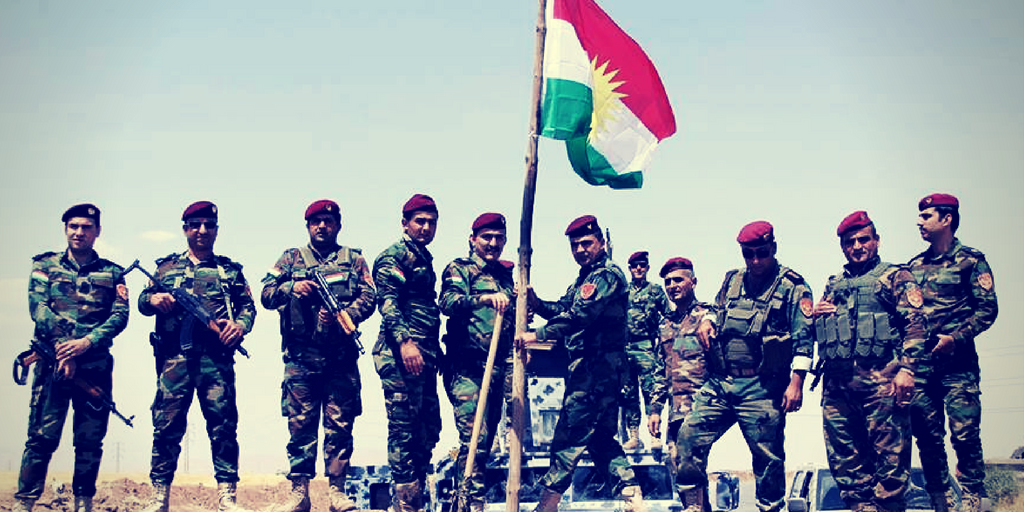The battle over Kirkuk has officially begun as Iranian and Iraqi forces enter the city of Kirkuk with US weapons gifted to Iraq for use only on ISIS. The Kurdish Peshmerga under threat from A1-Abrams Tanks now in the hands of the Hashd Al-Shaabi (an Iranian backed militia in Iraq) fell back to the city’s center.
Peshmerga forces attacked by Iraqi forces/PMF in #Kirkuk using US equipment, incl Abrams tanks & Humvees gifted to Iraq for the war on Isis. pic.twitter.com/Mqzw7FGofb
— KR Security Council (@KRSCPress) October 16, 2017
Kurdish casuties have already been reported by Kurdistan 24 and Rudaw.
Two civilians, believed to have volunteered to protect #Kirkuk city from Hashd al-Shaabi suffer significant injuries. #KurdistanBlockade pic.twitter.com/h3H29eN2YC
— Rudaw English (@RudawEnglish) October 16, 2017
Rudaw’s war reporter Hunar Ahmed attempts to help civilians attacked by Hashd al-Shaabi in #Kirkuk. #KurdistanBlockade pic.twitter.com/shELzzjf8J
— Rudaw English (@RudawEnglish) October 16, 2017
Peshmerga reinforcements have been sent from Erbil to push out the Iran-Iraq army now occupying Kirkuk and the oil rich region around it.
In a breaking development Turkey has publicly backed Baghdad over the Kirkuk crisis in a carefully worded statement:
“We are closely following the steps the Iraqi government is taking to establish its constitutional sovereignty over Kirkuk, the homeland of our Turkmen kin throughout history. Turkey will side with the Iraqi government in taking steps to ensure lasting peace and stability in the country,” the statement read.
Turkey has reportedly built up their defenses against the Syrian Kurds in preparation of their own assault against the Kurdish region in Syria.
Will US Back the Kurds?
Given that Baghdad, after years of US support has openly handed over A1-Abrams to America’s number one enemy, Iran, as well as after years of training with the US has now openly switched allegience to Tehran, US policy must change. In order to hold Iran back the Kurds must be seen as the frontlines in stopping Persian expansion.
Given the fast pace of events in and around Kirkuk, the US military leadership has been reported to be meeting with Kurdish leadership in Erbil. This meeting is a foreshadowing of preperations for a push back against the onlsaught by the merged Iran-Iraq army.




